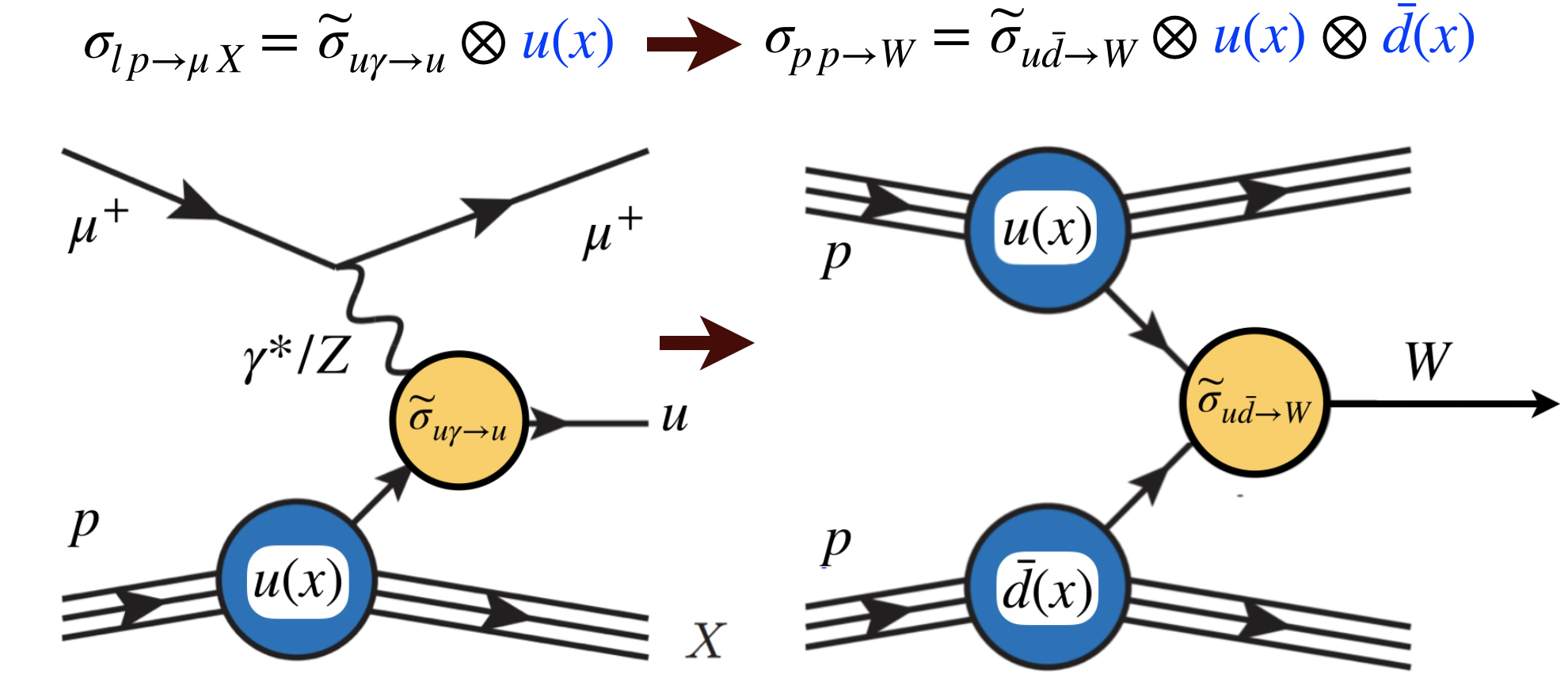Let me introduce you to Rebecca (not a real name). She is an engineer, more precisely a vehicle engineer: someone, an expert, who has been trained to develop and build cars.
Today is a very exciting day for Rebecca. After a long search and many disappointing refusals, she has finally landed her dream job: she is going to work as senior engineer in one of the worlds leading car manufacturers! Specifically, she has been hired to develop next-generation vehicles: energy-efficient cars, self-driving trucks, you name it. The stakes are high, but Rebecca is ambitious and confident in her skills. After all, her qualifications are flawless and she has done several internships in top-notch companies in her field. In short, she is more than ready to tackle this challenge and start turning her dream designs into real vehicles. She has been preparing all her live for this moment. She cannot wait to meet her new colleagues during her induction day, it will be a moment for sure to remember, she thinks.
After reporting at the company’s reception, she is brought to the manager’s office. We will call him Branden (again not a real name, for privacy reasons, we cannot afford lawsuits). Branden tells Rebecca how delighted they are that she accepted their offer, that the company sees a great potential in her, and that they will help her as much as possible to develop her exciting designs. After some polite small talk about not very interesting generalities, Rebecca asks Branden the questions that were burning inside her but that she never had the courage to ask when she was interviewed for the job. What follows is an abridged version of that conversion between Rebecca (B) and her manager Branden (B).
R: Wow, I am really excited, it is a dream to start working here! I have so many ideas, I cannot wait to start turning them into reality.
B: That’s the spirit! We appreciate your ambition, we need driven and motivated persons like you to make this company a success and to design the cars of the future!
R: Yes, yes, so exciting! hmm, Mr. Branden, could I ask you something?
B: Of course Rebecca, we are here to help, please ask me anything!
R: I was wondering … how many people will I have in my group? I don’t need a huge group to get started, but at least four or five junior engineers and some technicians are the very minimum. I am sure this is a reasonable request, specially for a company as important as this one! And, also, I wanted to ask, how much money will be allocated to my projects every year? This way I can decide which of my designs to prioritise, and which ones I can realise at a later stage. Planning is everything for an engineer, of course!
B: (suddenly a worried expression appears on his face) Aha, umm, Rebecca, where can I start? I thought that you had already been briefed over our operation mode, but I fear this is not the case … well, I guess that now is a good moment as good as any other to walk you through our business strategy. See, we will pay your salary, of course, needless to day, but alas we don’t have funding to assign anyone else to your project, nor to pay for any related investment or expenses.
R: (suddenly very confused, perhaps this is some kind of initiation ritual where they prank new employees? What else could this nonsense be?) But Mr. Branden, I am very sorry, I don’t think I understood you. You have hired me to design and build cars, so surely the company is going to provide the means for me to carry out all the task I was hired for? Why would you hire me and then leave me sitting in my desk with nothing to do?
R: (cheering up, now that the bombshell has been dropped) Well, this is the fantastic secret of our business model! See, we will not have to pay for your research, design and implementation work, but you can nevertheless get access to the money that you need. And how, you will ask? Easy: you need just to apply for funding to the Dutch Automotive Guild (DAG), who supports all vehicle design and construction activities in the Netherlands. You only need to prepare a short application (keep it brief, 30 pages with technical details and references will suffice typically) and a CV, and then very, very likely you will be awarded the money that you need to realise your projects! See, it is a win-win situation for our company: we get to build next-generation cars, while don’t having to pay for them! And this is just one of the many possibilities that you have to support your engineering work: you can also request the support for example of the prestigious European Automotive Council (EAC), who funds the most innovative and promising car design proposals in Europe! Really, it is a very well-thought and succesful model.
R: (relieved now, the system is a bit funny but at least she will get the resources that she needs). Good, thanks for the clarification! This sounds much better. Ok then, I will start to prepare right now my proposals, the sooner I can receive the money to get started to build my cars the better, right? And you said that it is very likely that I will receive the funding, so it is more like a tedious but straightforward bureaucratic step?
B: (somehow appears to be slightly nervous now, a twitch appears in his left eyebrow) Well, Rebecca, perhaps “very likely” is a bit of an overstatement. In any case, for someone with your skills and experience, being succesful in these applications will be a piece of cake! I am sure you will do great, and you have all the support from our side. R: Thanks Mr, Branden, I appreciate this, but still, I’d like to know, what are the success rates?
B: Well, umm, I don’t know on top of my head, let me check (fiddles with phone nervously) aha yes, here they are, average recent success rates are, I see, between 10% and 20%. You see, very sensible, nothing to worry about! R: (whose heart has dropped to her feet) Well, umm, that’s, what can I say, slightly unexpected. How come the success rate is not higher?
B: Well, we are of course not the only company with this business model. All car, motorbike, and truck manufacturers in The Netherlands and in Europe share the same model, so their engineers also need to submit the same applications to get funding for their designs. So yes, you are competing in a pool of extremely well-qualified, motivated, and driven peers. But as I mentioned, you are really well prepared, I am sure for you it will be a walk in the park!
R: (trying to pull herself together) Yes, I guess you are right … Well, let’s get started then! At least until one of these applications is succesful I won’t have much to do, so I can devote all my time to work on them.
B: (blushes, something appears to be wrong with him today) Sure, well, you have plenty of time, except for a couple of little assignments. First of all, our trainer for Vehicular Artificial Intelligence has just retired, and we wanted to ask you to take over his course. It will be not too time consuming, perhaps, let me check, between 8 or 10 hours per week? And our trainees love the course, so they are always looking for their teacher to ask questions. The only slightly bad news is that good old Mr. Carlson (again, not a real name) was well, old-fashioned, so he never used any supporting material, you will have to prepare everything from scratch.
R: (gulps and starts to feel dizzy) Ok, ok, so I will have to write all these proposals and teach the AI course, right? Yes, ok, I think I can manage that …
B: amazing, that’s the spirit! I knew you would really fit in our company! There is only a teeny weeny final thing: we have nominated you to the Dutch Council of Self-Driving Vehicles Engineers. It is a prestigious position, where you will have the pleasure to discuss and decide with extreme detail the official regulations for a whole field. You should be proud on being part of the Council! True, there are eight meetings per month and you will need to digest, edit, and comment on a few policy and regulation documents per meeting, but hey, think about that, you are playing a key role for the future of a whole field!
R: (thinking that this was not he imagined her dream day) Oh I see, interesting. Many thanks for the information, I am, how could I explain it, overwhelmed with all these interesting news. I think I’ll go to drink some coffee now (turns around and leaves the door, before Mr. Branden can give her any more assignments).
B: (muttering to himself) yes, yes, that’s the spirit, she will do so well, I am convinced. It is always a pleasure to welcome young engineers to the company, full of dreams and ambitions, and see them grow! Umm, unfortunately I forgot to tell Rebecca that she will also need to replace Dr. Kristin in her Steering 101 course starting tomorrow (she shuold have given us some notice that she was leaving, very inconsiderate from her side). No big deal, I will look for her later, I am sure she will be beyond delighted to hear that she can begin teaching young trainees already in her second day in the company!
In the subsequent months, Rebecca had to juggle her sudden and unexpected teaching and training responsibilities with an increasing number of management tasks and the ever-increasing number of grant applications. As the first grant rejections started to appear in her inbox, Rebecca became more and more disappointed. How had she ended in that position? How on Earth is possible that her company hires her, a rising star with impeccable credentials, to design and build the best cars in the world, and does not provide her with the means to do so? And, as she discovered with horror, the same business model was indeed shared by all other companies in her field. Each time she meet one of her peer engineers in one of the endless, seemingly pointless, meeting that they were all forced to attend, the conversation was always about the same topics: there is something tremendously wrong with the system. And they shared their amazement that none of the higher ups seemed to notice about the situation, and if they did, they seemed pretty content with the status quo….

The above story, you would agree, sounds a bit ridiculous: a car company that hires a stellar engineer but then does not provide the means for her to do any of her core work! Well, replace a car company with a university and welcome to Academia. Believe it or not, the situation that early career scientists (e.g. recently hired Assistant Professors) face, is, with some caveats, similar to the story of our unfortunate Rebecca. In a nutshell, you are hired to carry out research but are not given the means to do this research. For this you have to apply for research funding, a competitive and time-consuming system where success is more often than not the exception. And who survives in these academic Hunger Games? The fittest, the luckiest, or the more persistent? This will be the content of the next post …

